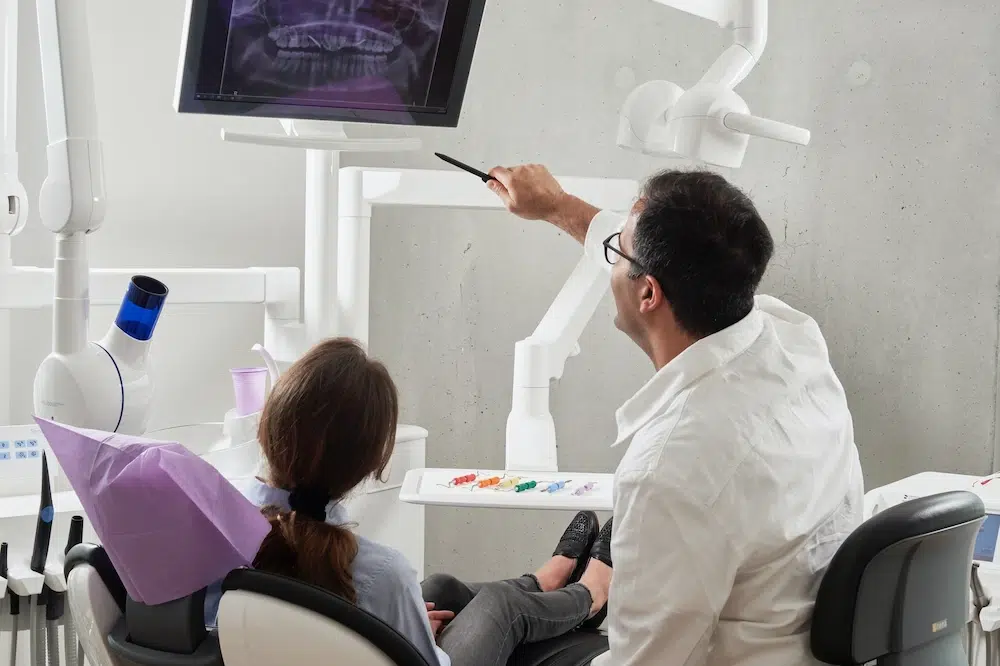
Can Dental Offices Bill For OSA?
Can dental offices bill for OSA? – It’s a question many wonder about, and the answer can greatly impact both patients and dental professionals.
Obstructive Sleep Apnea (OSA) is more than just loud snoring; it’s a serious sleep issue that can affect a person’s overall health.
As more and more people seek solutions, dental offices have become key players in offering treatments. But how does the billing work?
Dive in with us as we explore the ins and outs of OSA billing in dental practices, from the services you can charge for to the challenges that can arise.
Dental Role In OSA Treatment
How Dentists Help With OSA Treatment
Dentists play a role in spotting OSA. They see signs in the mouth and throat. Some signs are worn teeth, red throat, or jaw issues. When they see these signs, they can tell patients to see sleep doctors.
Dental Devices And OSA
For some people, dental devices help with OSA. These devices are like mouth guards. They move the jaw forward.
This opens up the airway and helps people breathe at night. Studies show they can work well for mild to moderate OSA.
Teamwork In OSA Care
Treating OSA is best with a team. This means doctors, sleep experts, and dentists working together. They share information and decide the best treatment. It’s key for the patient’s health and safety.
Billing For Dental OSA Services
Clarification Of Services That Can Be Billed For
Sleep Studies
Some dental offices do tests to see how a patient sleeps. This can help find out if they have OSA.
Oral Appliances
These are devices that a patient wears in their mouth during sleep. They help keep the airway open so the patient can breathe.
Follow-Up Visits
After giving a patient an oral appliance, they need to come back. This is to see if the device is working and fitting well.
Insurance Coverage For Dental OSA Treatments
Pre-Authorization
Before starting treatment, check with the insurance company. Some companies want to give approval first.
Documentation
Keep good records. Show that the treatment is needed. This can be test results, doctor’s notes, and more.
Coverage Limits
Some insurances do not pay for everything. They have a limit on how much they will pay.
Common CPT And ICD Codes Used For Billing OSA-Related Services
CPT Codes
- 95251: Polysomnography (PSG)
- 95252: Multiple sleep latency test (MSLT)
- 95254: Maintenance of wakefulness test (MWT)
- 95255: Home sleep testing (HST)
- 95256: Overnight oximetry
- 95800: Portable monitoring (e.g., WatchPAT)
- 95801: Portable monitoring with limited EEG
ICD Codes
- G47.33: Obstructive sleep apnea (adult) (pediatric)
- G47.29: Central sleep apnea (adult) (pediatric)
- G47.34: Sleep-related hypoventilation (adult) (pediatric)
- G47.35: Sleep-related hypoxemia (adult) (pediatric)
- G47.36: Sleep-related hypercapnia (adult) (pediatric)
Documentation Requirements
Importance Of Thorough Patient Records For Billing
Proof of Service
Detailed records show that a service was given. This is needed to prove to the insurance that you did the work.
Correct Billing
The right details mean you can bill accurately. This means getting the right pay for your work.
Avoiding Issues
Good records help avoid problems. You can show your records as proof, if there’s a question about a bill.
Examples Of Essential Documentation For OSA Billing
Sleep Study Reports
This report shows if a patient has OSA. It’s often needed before insurance will pay for treatment.
Doctor’s Referral
Sometimes, a note or order from a doctor is needed. This says the treatment is needed.
Oral Appliance Details
Details about the device used, like the type and date it was given.
Visit Notes
Each time a patient visits, take notes. Write what was done, any changes in their health, and how they feel about the treatment.
Photos
Sometimes, pictures of the mouth or the device in the mouth are needed.
How Accurate Documentation Can Expedite Reimbursement
Clear Billing
With all details, the bill is clear. The insurance company can see what was done and why.
Fewer Questions
Good records mean fewer questions. The insurance company does not need to call or ask more.
Quick Fixes
Good records help fix it fast, if there’s a mistake. You can see where the problem is and correct it.
Trust
Over time, insurance will trust your bills more, if your bills are always right and clear. This can lead to faster payments.
Reimbursement Challenges
Potential Challenges In Getting OSA Services Reimbursed
Insurance Denials
Sometimes, insurance can say they won’t pay. This is because they don’t see the need or a mistake in the bill.
Changing Rules
Insurance rules can change. What they paid for last year, they will not pay for this year.
Lack Of Documentation
Without the right records, it’s hard to show that a service was needed.
Unclear Coding
Wrong or unclear codes can slow down or stop payment.
Strategies For Overcoming Common Reimbursement Obstacles
Stay Updated
Keep up with changes in insurance rules. This can be through newsletters, training, or joining a professional group.
Check First
Before giving a service, see if insurance will pay. This is called pre-authorization.
Detailed Records
As we said before, good records are key. Make sure all the needed details are there.
Correct Coding
Always use the right codes. Double-check, if unsure.
Appeal Denials
Don’t give up, if insurance says they won’t pay. Many times, you can ask them to check again. This is called an appeal.
Role Of Dental Coding Experts In Optimizing Reimbursement
Expert Knowledge
These experts know all the codes and rules. They can make sure billing is done right the first time.
Training
They can teach others in the dental office about billing. This makes the whole team better.
Handling Problems
When there’s a billing problem, they know how to solve it. Whether it’s talking to insurance or fixing a mistake.
Staying Updated
They keep up with any changes in the rules. This way, the office always knows the latest.
Compliance And Regulations
Legal And Regulatory Considerations In OSA Billing
Licensing
Make sure the dental professional is allowed to treat OSA in their state. Some states have different rules.
Billing Accuracy
Always bill for the actual services given. False billing can lead to big legal problems.
Patient Confidentiality
Always keep patient details private. There are laws, like the Health Insurance Portability and Accountability Act (HIPAA), that require this.
Referral Protocols
When a patient comes from another doctor, there are rules about how this is noted and billed.
Ethical Guidelines For Billing OSA Services In Dental Practice
Honesty
Only bill for services that are given. And always give the care that’s needed.
Transparency
Explain the costs and billing, if a patient asks. They have a right to know.
Avoiding “Upcoding”
This is when a service is billed as a more costly one. It’s not honest and can be illegal.
Patient Best Interest
Always think of what’s best for the patient, not what makes the most money.
Staying Updated On Changes In OSA Billing Regulations
Join Associations
Groups like the American Dental Association (ADA) often give updates on rules.
Attend Workshops
Some groups offer training on billing. This can be a good way to learn.
Subscribe To Newsletters
Some companies and groups send out news on changes in the rules.
Consult Experts
Sometimes, asking an expert is best. They can give advice on tricky questions.
Patient Education
Importance Of Educating Patients About OSA And Billing Practices
Educating patients about OSA is crucial. When patients understand their condition, they’re more likely to follow treatment plans.
Plus, when they’re informed about billing, there’s clarity. This reduces surprises and helps the patient budget for their care.
Providing Transparency In Billing Procedures
Being clear about costs is vital. When a dental practice is transparent, patients know what to expect.
It’s about showing all costs, explaining insurance coverage, and discussing any out-of-pocket expenses.
This ensures there are no hidden fees and patients feel respected.
Building Trust With Patients For Successful OSA Management
Trust is the foundation of any doctor-patient relationship. When patients believe their dentist, they’re more open to trying treatments like OSA devices.
This trust is built by always being honest, listening to patients’ concerns, and offering clear and helpful answers. Over time, this trust leads to better health outcomes.
Conclusion
It is essential to note that dentists play a crucial role in spotting and helping treat OSA.
They use their expertise to detect early signs during check-ups and provide dental devices for symptom management.
Moreover, the emphasis on a team approach, involving various healthcare professionals, ensures that patients receive comprehensive care.
This teamwork shows that dentists go beyond oral health, making significant contributions in fighting conditions like OSA.



